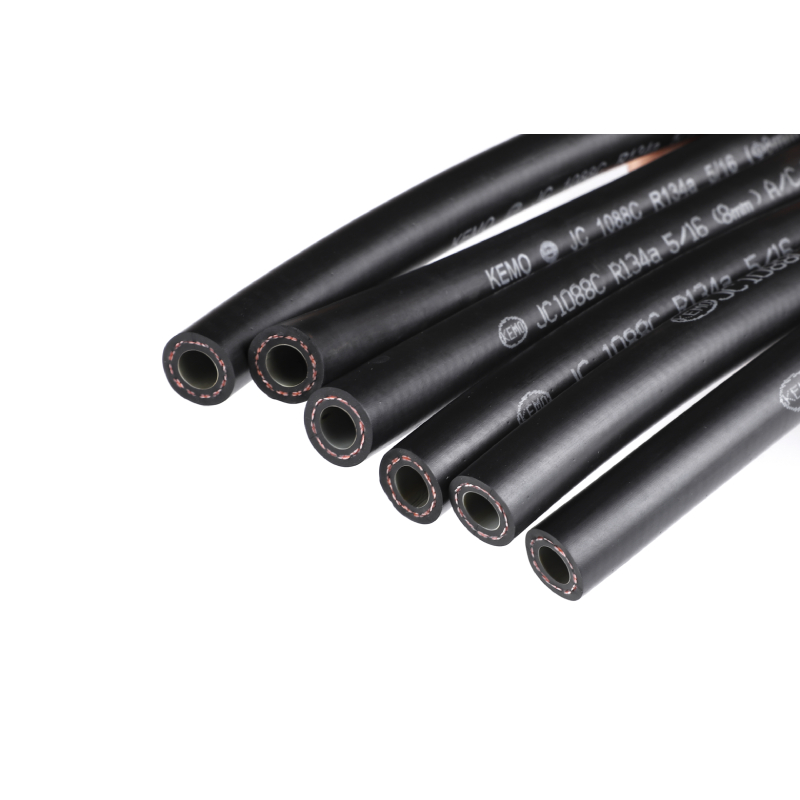custom oil lines
ທ.ວ. . 02, 2024 04:10 Back to list
custom oil lines
Understanding Custom Oil Lines A Comprehensive Guide
In the world of automotive enthusiasts and professional mechanics alike, custom oil lines have emerged as a critical component in building high-performance vehicles. Designed to efficiently transport oil to and from various engine components, custom oil lines offer significant benefits that standard components often cannot provide. This article explores what custom oil lines are, their importance, and factors to consider when selecting or assembling them.
What Are Custom Oil Lines?
Custom oil lines are specialized tubing systems fabricated to meet the specific requirements of an engine or machinery setup. Unlike off-the-shelf oil lines that come in standard sizes and shapes, custom oil lines are tailored to fit the unique dimensions and configurations of an individual vehicle. They can be made from various materials, including stainless steel, braided nylon, or rubber, each selected based on the particular needs of the application.
Importance of Custom Oil Lines
1. Improved Oil Flow One of the primary reasons for using custom oil lines is to enhance the flow of oil through the engine. Most factory-installed oil lines are designed for average performance, which may restrict oil flow in modified or high-performance engines. Custom oil lines can be designed with larger diameters or optimized shapes to minimize turbulence and improve overall flow efficiency.
2. Thermal Management Engine oil plays a critical role in cooling components and mitigating heat. Custom oil lines can be routed in a way that maximizes cooling, or they may be equipped with dedicated heat exchangers. This is especially important in performance engines that operate at higher temperatures.
3. Durability and Reliability With custom oil lines, enthusiasts can choose materials that meet their needs for durability and resistance to abrasion, heat, and pressure. High-quality lines can help prevent leaks and failures, which are critical in high-performance settings. A failure in the oil delivery system can lead to catastrophic engine damage, so investing in robust custom oil lines can provide peace of mind.
4. Aesthetic Appeal For car enthusiasts, the visuals of a vehicle matter greatly. Custom oil lines can enhance the overall look of an engine bay with options for colors and custom fittings. This attention to detail reflects the owner’s commitment to both performance and aesthetics, transforming a standard engine compartment into a showpiece.
custom oil lines

5. Tailored Fit Every car or engine setup is unique, and so are their oil routing needs. Custom oil lines can be tailored to fit precisely within the confines of your vehicle’s engine bay, avoiding contact with moving parts or heat sources. This ensures not only optimal performance but also the longevity of other components.
Factors to Consider When Selecting Custom Oil Lines
1. Material Selection The choice of material is crucial. Stainless steel lines offer high durability and resistance to rust, while braided nylon provides flexibility and lightweight options. Rubber lines are often less expensive but may need to be replaced more frequently.
2. Diameter and Length The diameter of the oil line affects the flow rate, and the length determines the path the oil travels. It’s important to calculate the optimal size and routing required for your setup to avoid restrictions.
3. Fittings and Connections Ensure that the fittings and connectors are compatible with your vehicle. Options include AN fittings, which provide a solid, leak-free connection, and many manufacturers offer a plethora of styles for customization.
4. Application Consider the intended use of the vehicle. Race cars might require different specifications compared to street performance cars; understanding the demands of your application will guide the design of your custom oil lines.
5. Installation While some might opt for self-installation, enlisting a professional could ensure that your custom oil lines are fitted correctly, further minimizing the risk of leaks and malfunctions.
Conclusion
Custom oil lines are more than just a trendy modification; they are a crucial aspect of optimizing your vehicle's engine performance, ensuring reliability, and enhancing aesthetic appeal. By understanding the benefits and considerations associated with custom oil lines, enthusiasts and mechanics can make informed decisions that contribute to the overall success of their automotive projects. Whether you’re building a race car or simply optimizing your daily driver, investing in high-quality custom oil lines can make a significant difference in performance and peace of mind.
